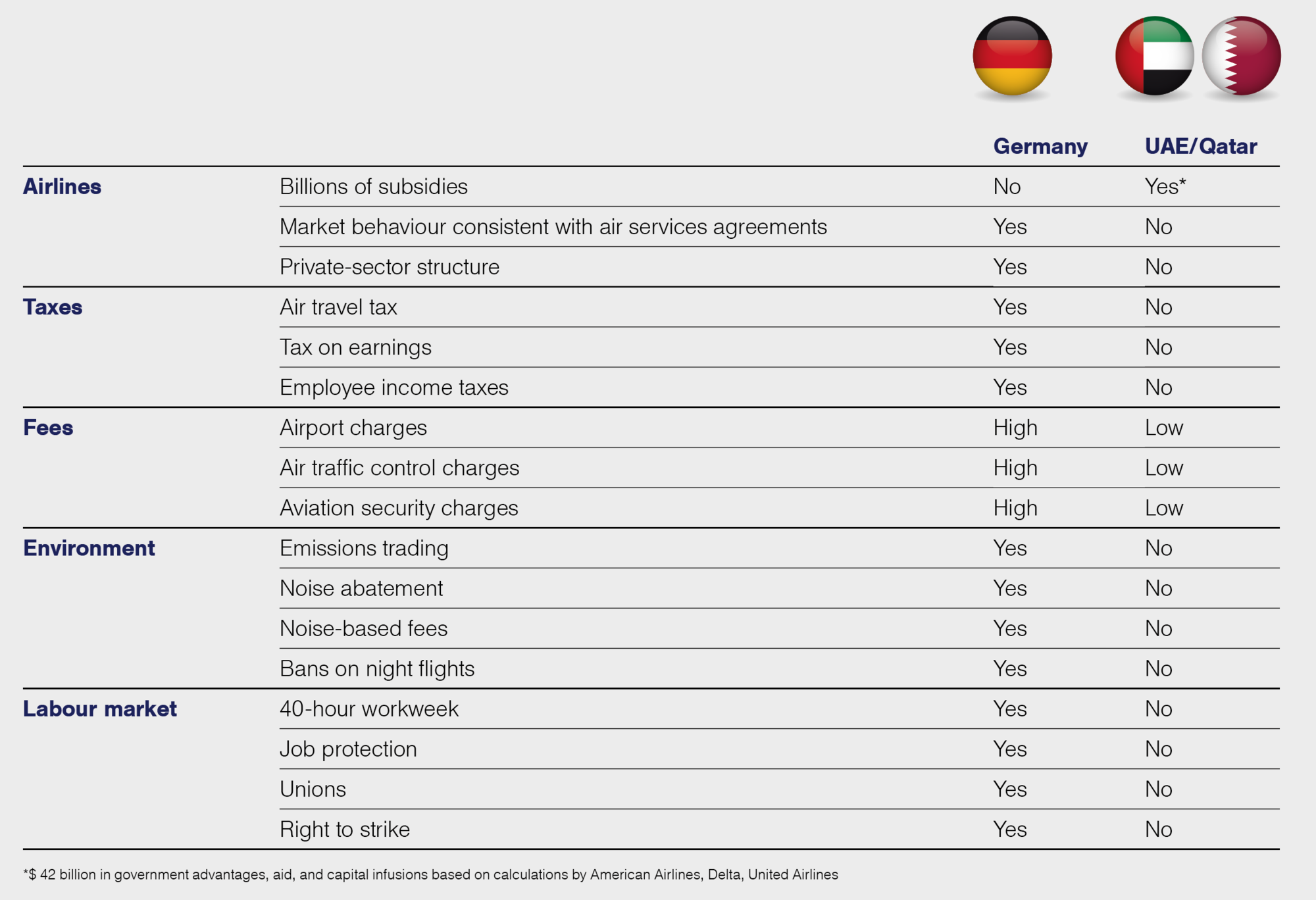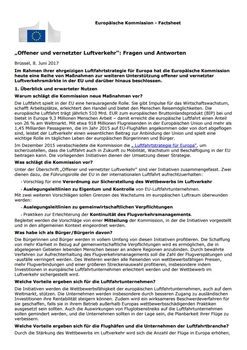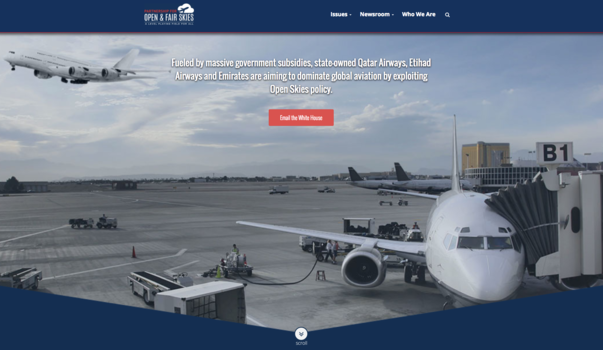In mid-May, the Dubai government provided three billion US dollars to further expand its two airports - Dubai International and Dubai World Central. The hubs are set to skyrocket from a current capacity of 90 million passengers to 146 million. Some plans even mention 240 million passengers as their target.
And yet there aren’t even three million people living in the Emirate of Dubai. The enormous terminals are thus totally oversized for the local market. Their right to exist comes from the federal government’s strategy to siphon transit passengers from other parts of the world – especially Europe – with all the financial resources of the crowd-out.
This conduct completely flies in the face of the existing aviation agreements between the UAE and Germany. And – contrary to official statements from Dubai and Qatar – it is anything but a geographic law of nature. Because while Emirates and Qatar, for example, have grown by an average of 18 percent per year (!) in services to Europe since 2002, airlines like Saudia, Oman Air, Gulf Air and Kuwait Airways in the same region are experiencing growth in keeping with the market. Their growth is around a fifth of those recorded for companies like Emirates and Qatar Airways.
Many European network airlines such as Air France/KLM also share these crowd-out concerns. And North American companies like the three major US network carriers – American Airlines, Delta and United Airlines – have for months been stirring the public into action to achieve fair competitive conditions vis-à-vis the Gulf carriers.
Fact sheet
“Open and interconnected aviation”: Questions and Answers
In early June, the EU Commission resolved to adopt a range of measures to support air traffic. A key issue here is fair competition:
“Whereas in many other economic sectors there are international rules which ensure open and fair competition, this is not the case for air transport services. EU airlines can thus be exposed to practices which negatively affect competition. This may lead to dominant market positions being held, or even to situations of monopoly, and could in turn negatively impact on traffic connections in the long-term, limit the available choices and lead to higher prices for EU citizens.”
US Airlines
Partnership for open & fair skies
The leading US airlines Delta, American and United have together been fighting for several years for fair global competition in their initiative Partnership for open & fair skies. The backdrop in this case is also predatory growth and the non-transparent financing practices of state-owned companies in the Gulf states. Details of the background, plus facts and figures can be found on the Initiative’s website.


